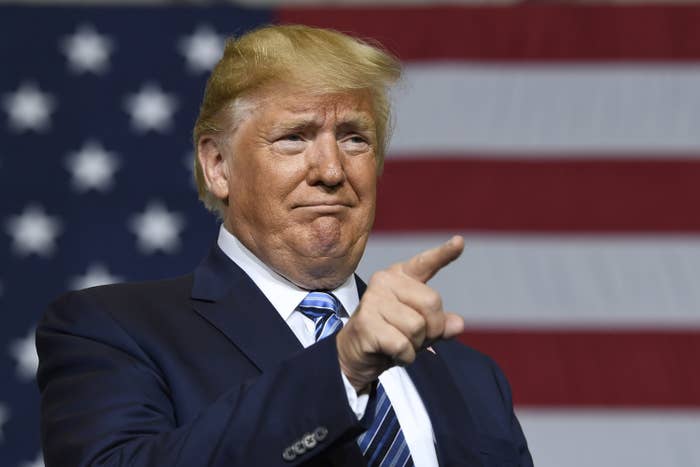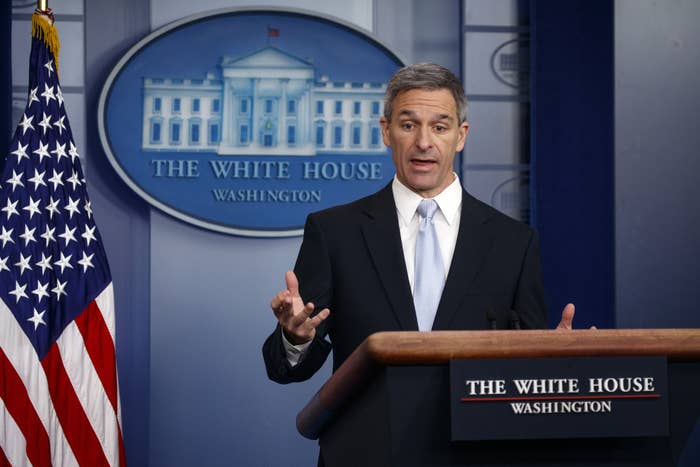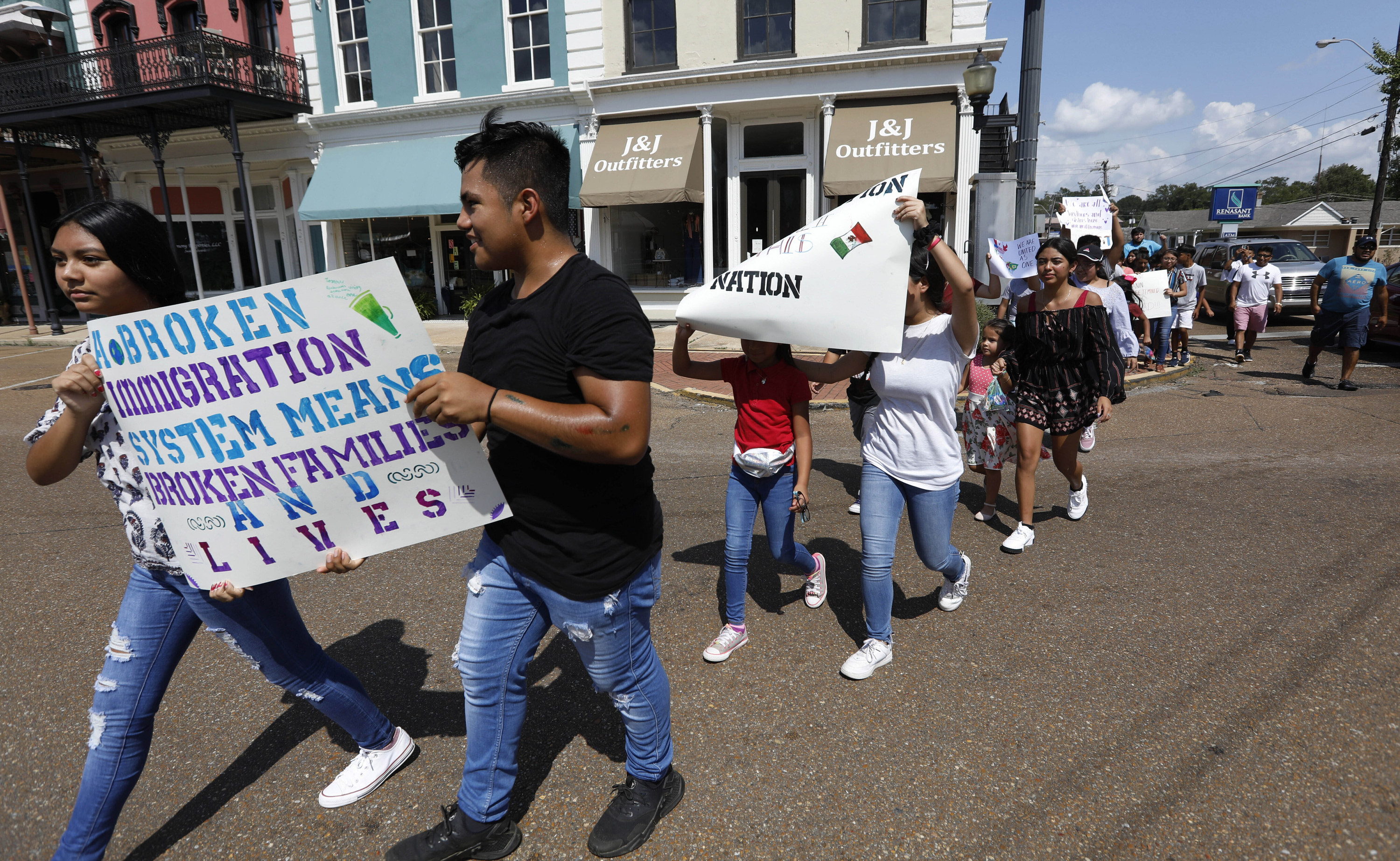
On Monday, Kara Lynum, an immigration attorney in Minnesota, received a call from a worried undocumented mother wondering if she should remove her child — a US citizen — from a school’s free lunch program.
The mom mistakenly thought that because of a new and complicated 837-page Trump administration policy denying green cards to immigrants who use some public benefits, her child’s enrollment in the school’s free lunch program might affect her own chance at becoming a lawful permanent resident.
It was one of several calls that Lynum’s office fielded from confused and scared immigrant parents asking if they, as Lynum said in a tweet, “should unenroll their COMPLETELY ELIGIBLE U.S. citizen kids from health insurance and free/reduced lunches.”
The government itself acknowledges this — that American children might suffer health care consequences as a result of its own actions. “Several commenters,” the policy reads, referring to members of the public who reviewed and commented on a draft of the policy, “said that the rule would cause the greatest harm to U.S. citizen children of immigrant parents.”
In response to this, the administration has said it would not change the rule despite noting its potential for “confusion” that could end up depriving US citizen children — who are not subject to the rule — of vital health and nutrition benefits.
Lynum assured the mother that it was OK for her child to be getting the school lunches. After more than a year of uncertainty, the rule, Lynum explained, only applied to immigrants seeking green cards, and her daughter isn’t one. The mother also would not be penalized for the benefits her US citizen child was receiving, per the rule. “She was still worried that it may someday impact her,” Lynum told BuzzFeed News.
It’s that fear and confusion around the rule that immigration advocates and researchers worry will have a huge impact on the lives of the very people who even Trump’s anti-immigration staff say shouldn’t be affected — American citizens and, in this case, children. Immigrant families with US citizen children, advocates said, might mistakenly forgo enrollment or disenroll their children from essential health and food benefits because they mistakenly fear that their kids’ getting the benefits would destroy their own chances at staying in the country and would tear their families apart.
While federal law has long required immigrants seeking green cards to prove they will not be a financial burden to the US or a “public charge,” the new rule expands the types of government benefits that would disqualify immigrants from seeking lawful permanent residence in the country.
Under the new policy — set to take effect in mid-October — immigration officials can deny green cards to those who use or are likely to use Supplemental Nutrition Assistance Program (SNAP, i.e., food stamps), Section 8 housing vouchers and assistance, public housing, or most forms of Medicaid.
The rule says, on page 86, that the receipt of these public benefits by US citizens will not be counted against their immigrant family members who are seeking a green card. But the Department of Homeland Security estimated that it would take a person around 16 to 20 hours to read the final rule, depending on the person’s “average speed and level of review.”
“It’s hundreds of pages of rules in the Federal Register, which is not something that most people will take the time to read,” said Ur Jaddou, director of DHS Watch and the former chief counsel to US Citizenship and Immigration Services. “If you don’t understand this multi-paged rule, your first instinct is, ‘oh my gosh, I can’t use these benefits, I can’t take a chance,” Jaddou told BuzzFeed News.
“There’s a lot of deception and deliberate fearmongering going on here,” said Doug Rand, a former Obama administration official who now helps families navigate the immigration system as co-founder of Boundless.
The policy, Rand told BuzzFeed News, takes advantage of the fact that very few immigrants who are seeking green cards or temporary visas are even eligible for public benefits, in order to scare those immigrants and their US citizen children who are lawfully entitled to them.
In fact, he said, the vast majority of immigrants who are eligible for public benefits already have green cards, and this rule doesn’t apply to them. But they’re the ones who are going to be disenrolling their families because, Rand said, “fear travels faster than facts.”
“And this administration considers that a feature, not a bug,” he said.
In the document detailing the rule, DHS acknowledged concerns about “the potential effects of confusion regarding the rule’s scope and effect.”
It also acknowledged “the potential nexus between public benefit enrollment reduction and food insecurity, housing scarcity, public health and vaccinations, education health-based services, reimbursement to health providers, and increased costs to states and localities.”
However, DHS said that it “finds it difficult to predict the rule’s disenrollment impacts" on people who mistakenly believed that it applies to them. But DHS said it would not alter the rule to account for the “unwarranted choices” of families who disenroll from public benefits even if they are not subject to the rule.
In response to public concerns over the confusion and the impact on US citizen children, DHS said it will “issue clear guidance that identifies the groups of individuals who are not subject to this rule, including, but not limited to, U.S. citizens, lawful permanent residents returning from a trip abroad who are not considered applicants for admission, and refugees.”
Homeland Security and the White House did not respond to a request for comment.

Advocates said that the rule will especially create fear and uncertainty in mixed-status families.
In 2016, there were more than 10 million US citizen children who had at least one noncitizen parent employed in a low-wage job with limited health coverage access. That’s according to a 2018 study by the Kaiser Family Foundation, which illustrated the potential impact of the proposed policy on health coverage for the US citizen children of immigrants.
The study showed that Trump’s policy could lead to disenrollment rates in the Medicaid/Children’s Health Insurance Program (CHIP) that would result in an estimated 875,000 to 2 million US citizen children with a noncitizen parent dropping their coverage — despite remaining eligible. The final rule does not include CHIP in the definition of a public benefit.
“It will have a dire humanitarian impact, forcing some families to forego [sic] critical life-saving health care and nutrition,” the National Immigration Law Center — which plans to file a lawsuit — said in a statement after the rule was announced Monday.
Immigration advocates and public health workers have already witnessed this impact firsthand.
There was a decline in food stamp enrollment and other public health and nutrition services “literally the day Trump gave his inauguration speech,” said Lisa David, the president of Public Health Solutions, a nonprofit that helps people enroll in programs for food stamps, nutrition programs, and health insurance in low-income and immigrant communities in New York state. There are also declines every time the administration announces immigration policies or there’s an Immigration and Customs Enforcement raid, she said.
“It’s not that [immigrant families] are thinking about this. They’re just dropping out,” David said.
When a draft of the proposed “public charge” rule was released last year, there was a 20% drop in SNAP enrollment and an 8% drop in the WIC (Women, Infants, and Children) program enrollment, David said. The drop was more pronounced in predominantly immigrant neighborhoods in New York.
“It’s based on a campaign of fear,” David said, adding that immigrants have been increasingly concerned about the government having their information.
Several people enrolled in New York state’s WIC program — which provides checks to pregnant women and mothers with young children to help pay for their nutritional needs — recently handed in their unused checks to David’s organization and requested that their names be removed from the WIC database. The final rule does not include the WIC program in its list of public benefits.
“The horrible thing about all of this is ... that it’s heavily targeted towards immigrant families with young children,” David said.

The rule will also hamper the ability of families with young children to put food on the table if they fear their enrollment in SNAP will affect their immigration status.
Ever since rumors of the public charge policy began in 2017, twice as many eligible noncitizen New Yorkers were either withdrawing from or not enrolling in SNAP, compared with eligible US citizen New Yorkers, according to an analysis of SNAP released by the New York City Department of Social Services and the Mayor’s Office of Immigrant Affairs in June.
“While we cannot definitively prove that the public charge proposal has caused these changes to SNAP participation, we identify an important correlation that, reinforced by anecdotal and survey evidence, suggests a chilling effect: eligible immigrant families are avoiding SNAP out of fear of potential immigration consequences,” the analysis said.
“SNAP is the most successful government program we have that reduces food insecurity, and anything that will discourage people, including immigrants, from being on SNAP, will have serious consequences,” said Craig Gundersen, a professor at the University of Illinois College of Agricultural and Consumer Economics whose research in food security focuses on SNAP.
Food insecurity rates will go up. That will lead to an increase in negative health outcomes. That will lead to an increase in health care costs, Gundersen told BuzzFeed News.
“If you’re food insecure and not on SNAP, you’re stuck going to pantries, which are not always open, have very long lines, and can’t serve everybody,” David said. “It’s a complete life disruptor.”
When families don’t have secure access to food, they are likely to have poorer health, she said, and children don’t perform well in school.
Health care workers have also observed drops in people coming into public hospitals for emergency or routine preventive care whenever the administration announces new immigration policies.
“It’s a horrible trade-off between access to health-related services and keeping your family together in the US,” David said.
Undocumented immigrants with US citizen children are also significantly less likely to get different types of health care services for their children, including emergency and preventive care and flu shots, according to a survey by the US Immigration Policy Center, which included 370 respondents with US citizen children.
The survey showed that undocumented immigrant parents of US citizen children in public K-12 education were also significantly less likely to get free or reduced-cost school meals for their children when they were told about the proposed public charge rule.
Xavier Becerra, the attorney general of California, where half of all children have an immigrant parent, has vowed to file a lawsuit against the rule.
“This vile rule is the Trump Administration’s latest attack on families and lower income communities of color,” Becerra said in a statement. “It will harm our communities, schools, and workplaces by weaponizing essential healthcare, housing, and nutrition programs. We will not stand idly by while this Administration targets programs that children and families across our state rely upon.”
New York Attorney General Letitia James also said she intended to sue the Trump administration over the public charge rule.
“Under this rule, children will go hungry,” she said, “families will go without medical care.”
